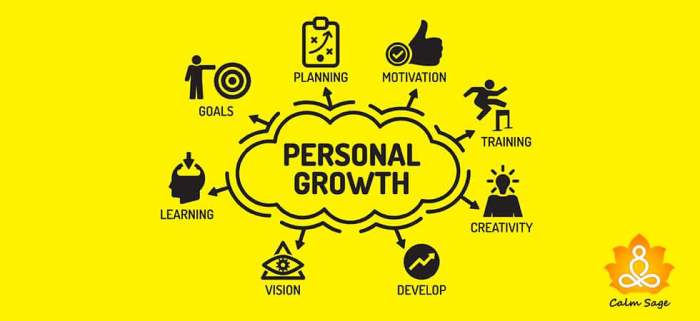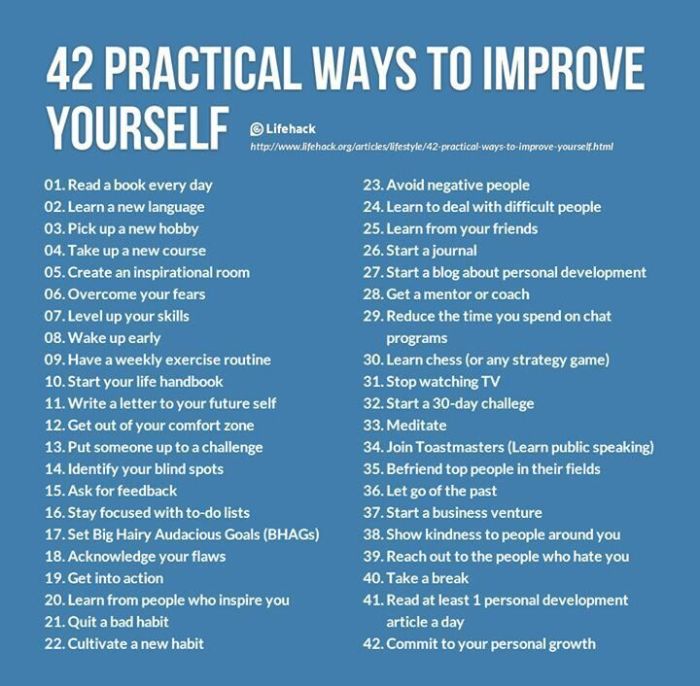Diving into Self-Improvement Tips, we’re about to drop some knowledge that will level up your game. Get ready to boost your personal growth, happiness, and success with these tips that will change the game!
From setting killer goals to developing healthy habits, we’ve got all the inside scoop on how to upgrade your life like a pro. So sit back, relax, and let’s take your self-improvement journey to the next level.
Importance of Self-Improvement

Self-improvement is like leveling up in a video game, but in real life. It’s all about becoming the best version of yourself and unlocking your true potential.
Personal Growth
When you commit to self-improvement, you embark on a journey of constant learning and development. You start to discover new skills, talents, and interests that you never knew you had. This growth not only enhances your knowledge but also boosts your confidence and self-esteem.
Increased Happiness and Fulfillment
- By setting and achieving personal goals through self-improvement, you create a sense of purpose and direction in your life. This leads to increased happiness and fulfillment as you see yourself progressing and evolving.
- Self-improvement helps you build a positive mindset and outlook on life, enabling you to better cope with challenges and setbacks. This resilience contributes to your overall well-being and satisfaction.
Positive Impact on Relationships and Career Success
- Improving yourself can positively impact your relationships by enhancing your communication skills, empathy, and ability to connect with others. This leads to stronger, more meaningful relationships built on trust and understanding.
- In the professional realm, self-improvement can open doors to new opportunities and advancement. By continuously developing your skills and knowledge, you become a valuable asset to your workplace and increase your chances of career success.
Setting Goals for Self-Improvement: Self-Improvement Tips
Setting goals for self-improvement is crucial for personal growth and development. By having clear objectives in mind, individuals can focus their efforts and track their progress effectively.
Strategies for Setting Realistic and Achievable Goals
- Start small: Begin with achievable goals that can be easily accomplished to build momentum.
- Be specific: Clearly define what you want to achieve to avoid vagueness.
- Break it down: Divide larger goals into smaller, manageable tasks to prevent overwhelm.
- Track progress: Monitor your advancements regularly to stay motivated and make adjustments if needed.
The Importance of SMART Goals
Setting SMART goals – specific, measurable, attainable, relevant, and time-bound – ensures clarity and focus in your self-improvement journey. These criteria help in creating goals that are realistic, trackable, and within reach.
Examples of Short-Term and Long-Term Self-Improvement Goals, Self-Improvement Tips
- Short-term: Improve time management skills by creating a daily schedule and sticking to it for a month.
- Long-term: Enhance physical fitness by training for and completing a half-marathon within a year.
- Short-term: Develop better communication skills by actively listening and practicing assertiveness in conversations for three months.
- Long-term: Advance career growth by obtaining a professional certification in your field within the next two years.
Developing Healthy Habits
Developing healthy habits plays a crucial role in self-improvement as it sets the foundation for a positive and productive lifestyle. These habits have a significant impact on our overall well-being, productivity, and success in various aspects of life.
Benefits of Healthy Habits
- Improved physical health: Eating nutritious foods, exercising regularly, and getting enough sleep can boost energy levels and overall health.
- Enhanced mental well-being: Practicing mindfulness, meditation, and positive thinking can reduce stress and improve mental clarity.
- Increased productivity: Setting a routine, prioritizing tasks, and staying organized can lead to better time management and efficiency.
Tips for Replacing Negative Habits
- Identify triggers: Recognize what prompts negative habits and find healthier alternatives to cope with those triggers.
- Set realistic goals: Start small and gradually work towards eliminating negative habits while incorporating positive ones.
- Stay consistent: Consistency is key to forming new habits, so commit to practicing positive behaviors regularly.
- Seek support: Surround yourself with individuals who encourage and motivate you to make positive changes.
Time Management for Self-Improvement

Effective time management is crucial when it comes to self-improvement. By utilizing your time wisely, you can maximize productivity and make significant progress towards your goals. Prioritizing tasks and setting boundaries are key components of successful time management that can help create the necessary space for self-improvement efforts.
Setting Priorities
- Identify your most important tasks and focus on completing them first.
- Use tools like to-do lists or apps to organize your tasks and keep track of deadlines.
- Avoid multitasking as it can decrease efficiency and quality of work.
Creating Boundaries
- Learn to say no to activities that do not align with your self-improvement goals.
- Schedule dedicated time for self-improvement activities and treat it as non-negotiable.
- Avoid distractions such as social media or unnecessary meetings during your focused self-improvement time.
Time Management Tools
- Utilize time tracking apps to monitor how you spend your time and identify areas for improvement.
- Implement the Pomodoro technique, where you work in focused intervals with short breaks in between.
- Use a calendar or planner to schedule your tasks and allocate specific time slots for self-improvement activities.
Self-Care Practices
Self-care is an essential component of the self-improvement journey, as it involves taking deliberate actions to prioritize your mental, emotional, and physical well-being. By engaging in self-care practices, you can recharge, rejuvenate, and refocus, ultimately enhancing your overall quality of life.
Benefits of Self-Care
Self-care plays a crucial role in maintaining a healthy work-life balance and reducing stress levels. It allows you to nurture yourself, build resilience, and prevent burnout. By practicing self-care regularly, you can boost your mood, increase productivity, and improve your relationships with others.
Self-Care Practices
- Practice mindfulness and meditation to calm your mind and reduce anxiety.
- Engage in regular exercise to boost your physical health and release endorphins.
- Allocate time for hobbies and activities that bring you joy and relaxation.
- Get an adequate amount of sleep to rejuvenate your body and enhance cognitive function.
- Establish healthy boundaries to protect your time and energy from draining activities or people.
Creating a Self-Care Routine
- Identify activities that make you feel good and incorporate them into your daily or weekly schedule.
- Set realistic goals for self-care and track your progress to stay motivated.
- Prioritize self-care by treating it as a non-negotiable part of your routine.
- Experiment with different self-care practices to find what works best for you and adjust as needed.
- Seek support from friends, family, or professionals to hold you accountable and provide encouragement.